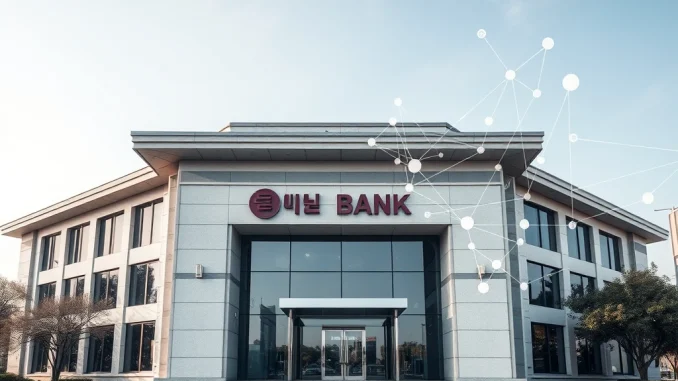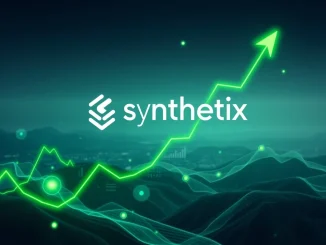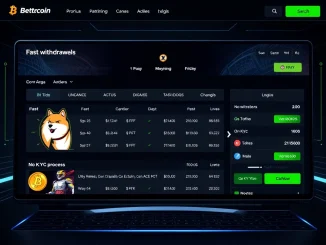
The landscape of finance in South Korea continues its fascinating evolution, particularly concerning digital assets. A significant development signals growing institutional engagement within the South Korea blockchain ecosystem: Kbank, the prominent neobank and banking partner for the nation’s leading crypto exchange, Upbit, has officially joined a key industry body.
What is Happening with Kbank and the Blockchain Association?
According to reports, Kbank has become a member of the Open Blockchain & Decentralized Identifier Association (OBDIA). This move is noteworthy because Kbank serves as the primary fiat on-ramp and off-ramp for Upbit users, making it a crucial link between traditional banking and the crypto market in South Korea.
OBDIA, established in 2018 and operating with approval from the Ministry of Science and ICT, is a non-profit organization dedicated to advancing blockchain technology. Its focus areas include research, development, and fostering discussion around distributed ledger technologies and decentralized identifiers.
By joining this Blockchain association, Kbank aims to deepen its involvement in the broader dialogue surrounding blockchain’s potential and its integration into the financial system.
Why is Kbank Interested in Stablecoins and Regulation?
Kbank stated that its membership provides an opportunity to participate in discussions on a range of blockchain topics. Among the key areas of interest mentioned are stablecoin technology and regulatory policy.
The focus on Kbank stablecoin initiatives is particularly relevant. Stablecoins, cryptocurrencies designed to maintain a stable value relative to an asset like a fiat currency, are seen by many as a potential bridge between traditional finance and the volatile crypto world. As a bank, Kbank would naturally be interested in how these digital assets could function within existing financial frameworks, potentially for payments, settlements, or other services.
Furthermore, navigating the complexities of Korean crypto regulation is paramount for any financial institution interacting with the digital asset space. By engaging directly with an industry group like OBDIA, Kbank can contribute to and gain insights from discussions shaping the future regulatory environment for blockchain and digital assets in the country. This proactive approach could help the bank prepare for and adapt to upcoming rules and guidelines.
What Does This Mean for Upbit and Its Banking Partner?
The relationship between Kbank and Upbit is fundamental to South Korea’s crypto market infrastructure. Kbank’s role as the exclusive fiat partner for Upbit means that most Korean Won deposits and withdrawals on the exchange flow through Kbank accounts. This makes Kbank arguably the most significant Upbit banking partner.
Kbank’s deeper dive into blockchain technology, stablecoins, and regulation through its OBDIA membership could have indirect implications for its partnership with Upbit. A better understanding of the technology and a hand in regulatory discussions could potentially lead to more streamlined or innovative services related to crypto in the future, although the immediate impact on the user experience remains to be seen.
Benefits of Such Industry Collaboration
Joining a Blockchain association offers several advantages for an entity like Kbank:
- Knowledge Sharing: Access to expertise and research from other members involved in cutting-edge blockchain development.
- Policy Influence: A platform to contribute to discussions that may inform future regulatory frameworks.
- Networking: Opportunities to collaborate with technology firms, academic institutions, and other financial players in the blockchain space.
- Early Insight: Gaining early perspectives on technological trends like stablecoins and decentralized identity.
Challenges and the Road Ahead
While promising, the path forward involves challenges. Integrating blockchain technology into existing banking systems requires significant technical effort. Furthermore, the regulatory landscape for stablecoins and other digital assets is still evolving globally and within South Korea, presenting uncertainties that need careful navigation.
Kbank’s decision to join OBDIA signals a strategic intent to be at the forefront of understanding and potentially leveraging these technologies. It reflects a growing recognition within traditional finance of the long-term potential of blockchain, even as regulatory frameworks are still being defined.
Conclusion
Kbank’s membership in the Open Blockchain & Decentralized Identifier Association marks a notable step in the convergence of traditional finance and blockchain technology in South Korea. As the primary Upbit banking partner, Kbank’s engagement with discussions around Kbank stablecoin possibilities and Korean crypto regulation through this Blockchain association is a positive indicator for the future development and potential integration of digital assets within the established financial system in South Korea blockchain space. This collaboration could pave the way for greater clarity and innovation in the years to come.



